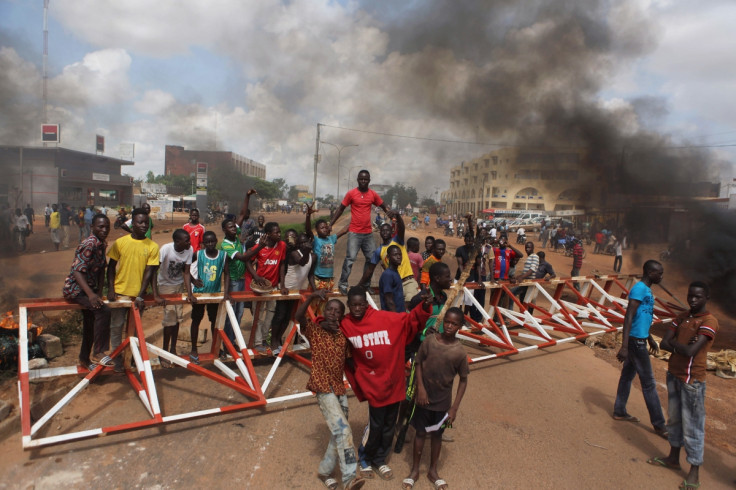Burkina Faso: Ex leader Blaise Compaore 'used RSP to undermine democracy'

Yacouba Isaac Zida, Burkina Faso's prime minister, has accused former president Blaise Compaore of using his presidential guard – known as Régiment de Sécurité Présidentielle (RSP) – to undermine the country's democracy.
Compaore stepped down in 2014 following violent protests triggered by his decision to participate in 2015's presidential election after 27 years in power. The leader fled to the Ivory Coast while the RSP - which he had installed during his leadership - remained in power and carried a coup d'etat in September trying to oust interim president Michel Kafando.
The guard held Zida, Kifando and two other ministers and established a new National Democratic Council (NDC). Following protests that resulted in the death of at least 10 people and negotiations chaired by the Economic Community of West African States (Ecowas), Kafando was reinstated as interim leader while people with ties to Compaore were allowed to participate in the upcoming election, for which a date is now uncertain.
Burkina Faso
Capital: Ouagadougou
Population: 16.9 million
Official language: French
Main religions: Islam, Christianity, Animism
Largest cities: Ouagadougou , Bobo-Dioulasso,
Koudougou , Ouahigouya , Banfora
Currency: West African Franc
Zida accused Compaore of using his presidential guard "to stop the legitimate aspirations of the people of Burkina for a real democracy," AFP reported. The prime minister made the comment during a ceremony to mark the disarmament of the RSP, as part of the negotiations to resolve the crisis.
It is believed the coup was carried out after a commission suggested the disbandment of the RSP amid allegations it had fired on unarmed protesters during 2014 protests. RSP also said it was unhappy with the ban on candidates who were close to Compaore in the forthcoming October election. Rumours also spread that Compaore was behind the coup and the RSP tried to bring the former leader back to power.
On Monday (5 October) UN secretary general Ban Ki-moon met Kafando – who was reinstated as interim leader after the coup ended – to discuss the situation in the country. Ban stressed the urgency to find a new date for "peaceful and credible presidential and legislative elections". Meanwhile, Burkinabe authorities said General Gilbert Diendere, a former ally of Compaore and the main leader behind the coup, is now in their custody.
© Copyright IBTimes 2025. All rights reserved.






















